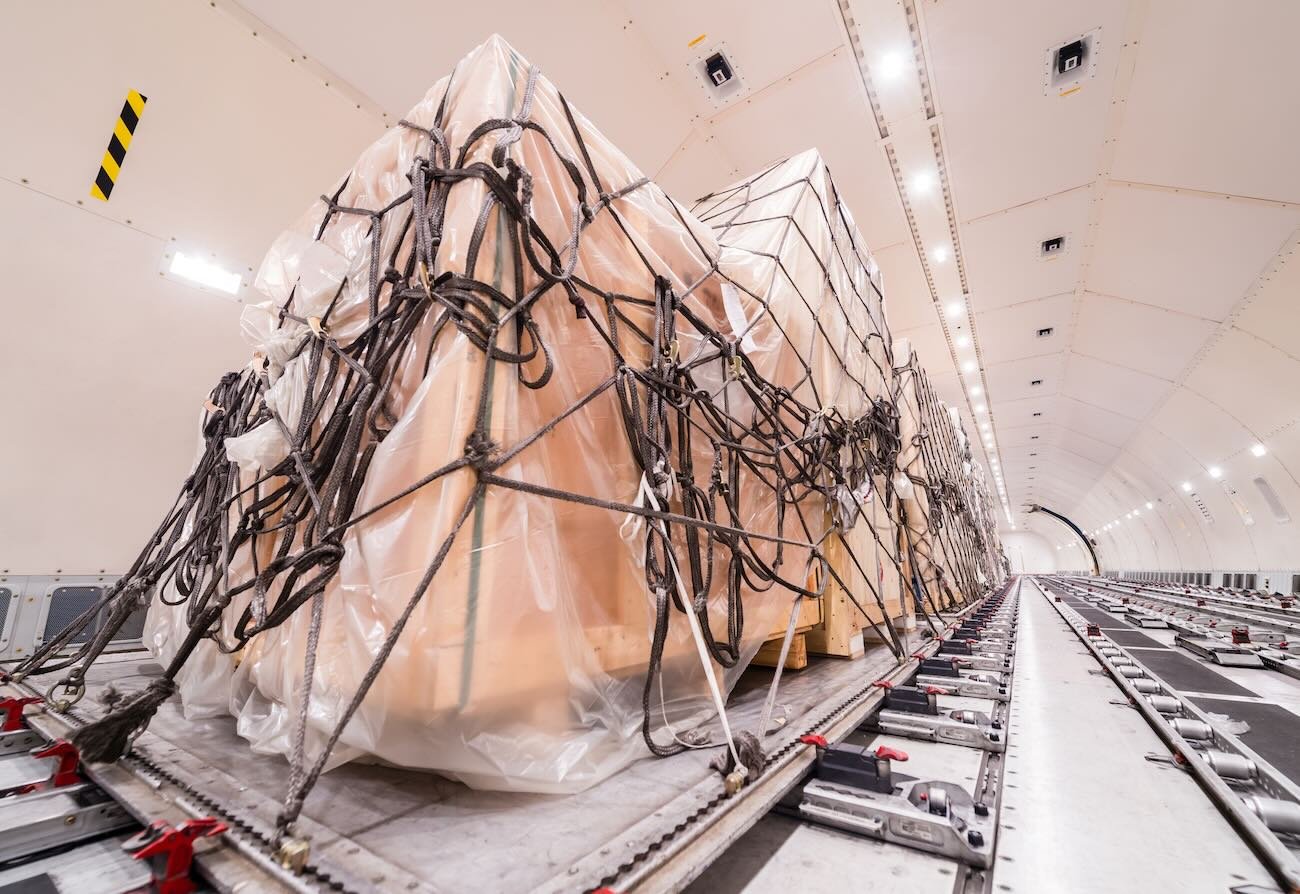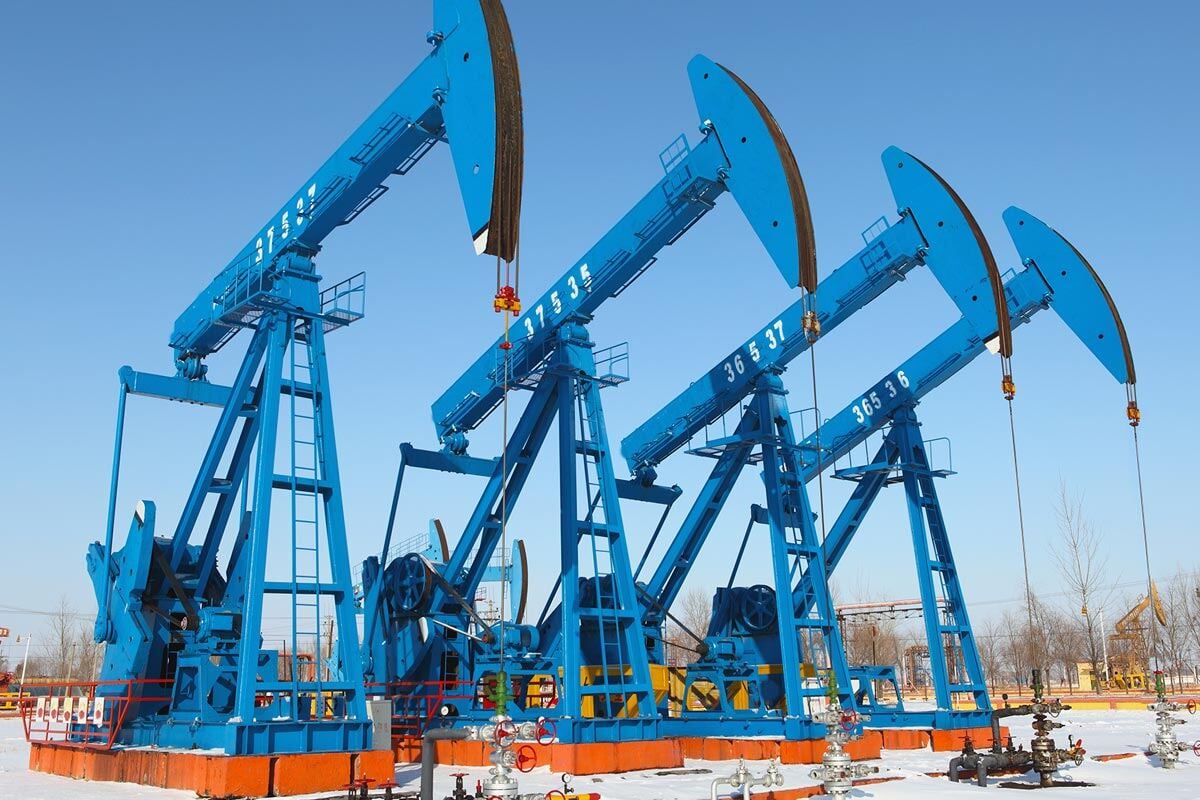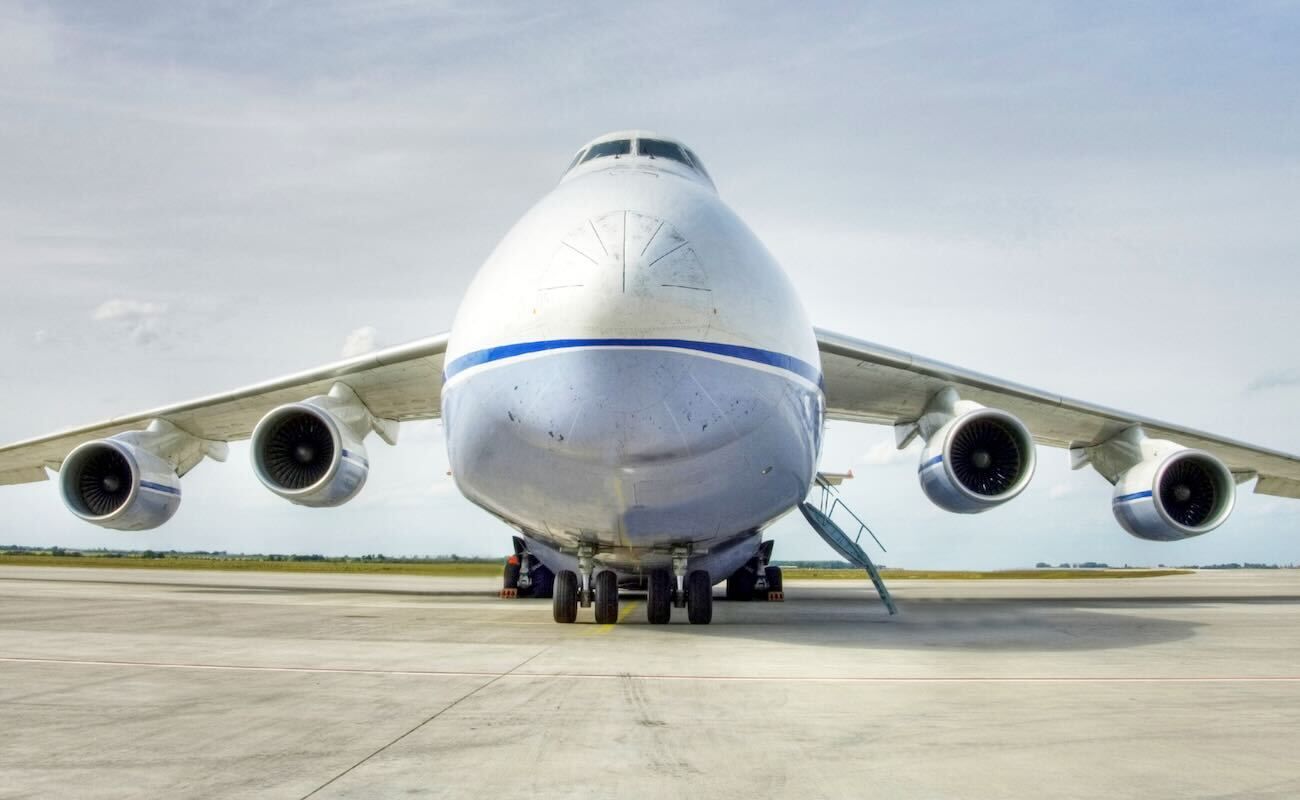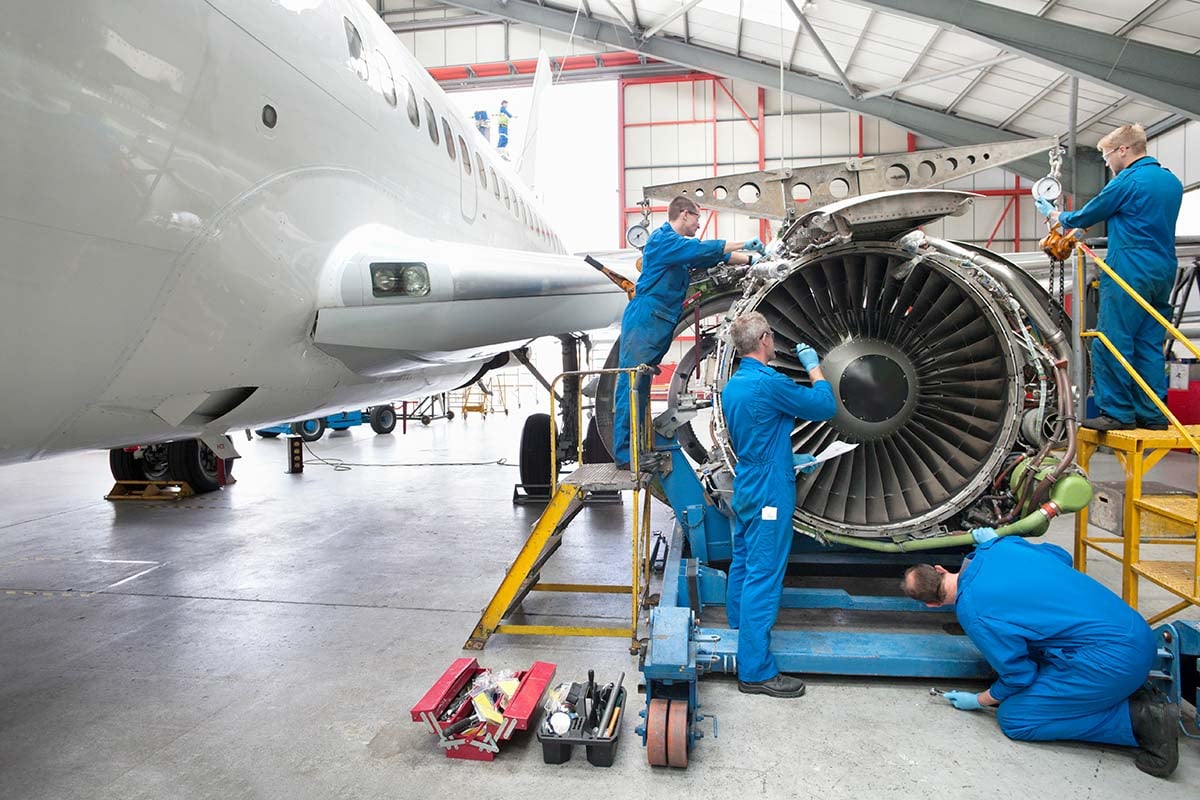When traditional air freight shipping can’t meet a critical deadline or unique cargo requirement, many companies turn to air charter broker services.
An air charter broker acts as a specialist intermediary, securing entire aircraft for dedicated freight missions on behalf of shippers. This niche of air freight has grown from a last-resort solution into a strategic logistics tool. In fact, the global market for freight air charters topped $20 billion in 2021 and is projected to approach $30 billion by the mid-2020s. In the United States alone, more than 2,500 FAA-licensed air charter operators are available to carry cargo, and brokers connect customers with these carriers. This article provides a comprehensive overview of the U.S. air charter broker industry – what these brokers do, the advantages they offer, the industries that rely on them, how the sector is evolving, and how to choose a reliable partner. The goal is an informative yet accessible guide for shippers and logistics professionals looking to understand air charter broker services and how the industry operates.
WHAT DOES AN AIR CHARTER BROKER DO?
An air charter broker is essentially the cargo logistics equivalent of a travel agent, but for chartering entire aircraft. They do not operate planes themselves; instead, they act as intermediaries between the client (shipper) and air carriers..
In practice, an air charter broker will assess a shipper’s needs – payload, timeline, origin/destination, special handling requirements – and then source the right aircraft and operator to perform the flight. This involves tapping into a network of certified air freight carriers (cargo airlines and charter operators) and finding the best fit in terms of aircraft type, availability, and price.
$32.2 B
$12.2 B
10.2 %
22%
TALK TO AN EXPEDITOR NOW
Get a Quote in Minutes for Your Time-Critical Freight Needs
AirFreight.com Advantages
- Dedicated Single Point of Contact: One seasoned charter logistics specialist oversees your shipment from quote to POD, eliminating miscommunication and streamlining the entire aircraft charter process.
- World Class Customer Service: Round‑the‑clock coverage guarantees immediate access to on‑demand charter flights, real‑time tracking, and rapid status updates—vital for emergency air freight and AOG situations.
- Time‑Critical & Expedited Freight Expertise: We secure last‑minute aircraft—anything from a Pilatus PC‑12 to a Boeing 747‑400F or Antonov An‑124—to minimise production‑line downtime and meet just‑in‑time delivery windows.
- Experienced Expeditors: Our air cargo logistics team optimises routing and negotiates transparent, cost‑effective charter rates—saving you money and headaches
Advantages of Using an Air Charter Broker
Why use an air charter broker instead of booking cargo through normal channels? Simply put, air charter brokers unlock capabilities that standard air freight services or scheduled airlines often cannot provide. They make it feasible to move goods faster, more flexibly, and more directly than conventional shipping. Key advantages include:

Air Cargo Speed and Urgency
Brokers enable true on-demand air freight. If a factory production line is down waiting for a part, a broker can arrange a dedicated aircraft and have it airborne within hours. This just-in-time responsiveness means same-day or next-day delivery is possible – far faster than typical air cargo schedules. In emergencies or time-critical situations, chartering a plane via a broker is often the only way to meet the deadline.

Global Air Charter Reach and Access
Air charter brokers can reach destinations and origin points that might be impossible or impractical via normal air freight routes. Charters can utilize smaller regional airports or even unimproved airstrips that large cargo airlines don’t serve.
This is crucial for delivering to remote project sites, mines, oilfields, or regions with limited infrastructure. By using a broker to arrange a charter, a shipper can get cargo picked up closer to the origin and delivered closer to the final destination, minimizing ground transit. Essentially, brokers provide door-to-door air delivery options well beyond the network of scheduled flights.

Air Charter Aircraft Capacity and Customization
When you charter an aircraft, the entire plane’s capacity is dedicated to your freight. This allows transport of outsized, heavy, or high-volume shipments that might not fit in standard scheduled freighters. Need to move an oversized generator or an entire factory’s worth of inventory? A broker can secure a cargo jet (even the world’s largest freighters, if necessary) that is right-sized for the load. They also arrange any special handling – from temperature-controlled cargo holds for pharmaceuticals to onboard couriers for secure hand-carry items. In short, brokers match the aircraft and set-up to the shipment’s exact needs, something off-the-shelf air freight services cannot do.

Air Charter Industry Expertise
Navigating the charter market requires specialized knowledge – brokers provide that expertise. A seasoned air freight broker knows the going rates, the reliable operators, and the operational constraints, so they can negotiate competitive pricing and ensure all safety standards are met. They handle complex logistics and paperwork (permits, customs clearance, insurance) on the client’s behalf. This saves the shipper enormous time and effort versus trying to arrange a charter directly. Essentially, using a broker is a one-stop solution: the broker coordinates with the carrier, airport authorities, truckers for drayage, and so on, providing the shipper with a single point of contact. By leveraging a broker’s industry knowledge and relationships, shippers can often avoid costly mistakes and secure better terms than they would on their own.

Risk Mitigation
When disruptions strike – be it a port closure, commercial flight cancellation, or natural disaster – having a charter broker on call provides a critical contingency. Many companies now treat air charters as an insurance policy for the supply chain, maintaining relationships with brokers even if they only use them occasionally. In a crisis, a broker can very quickly find alternatives to keep your cargo moving. This agility can prevent millions of dollars in losses by averting stockouts or production shutdowns. In short, brokers add a layer of resilience to logistics planning.

Industries That Use Air Charter Broker Services
- Aerospace & Aviation
- Pharmaceuticals & Healthcare
- Oil & Gas (Energy)
- Automotive Manufacturing
- Technology & Electronics
Aerospace & Aviation
The aerospace sector itself uses charter brokers to move large aircraft parts and support Aircraft-on-Ground (AOG) situations. If an airline has a jet grounded due to a missing part, chartering a smaller aircraft to deliver that spare engine or component can get the plane back in service quickly. Brokers have arranged flights for entire jet engines, fuselage sections, and even satellites. Some of the largest cargo planes in the world (like the Antonov An-124, capable of carrying ~120,000 kg) are employed via brokers to transport aerospace components that can’t fly on regular freighters. Defense and government agencies also fall under this umbrella – brokers coordinate military charters for equipment and humanitarian aid missions. For example, during disaster relief operations, agencies will use brokers to charter cargo aircraft full of relief supplies to affected areas on short notice. The government and defense sector values charter brokers for the security and confidentiality they can provide, as well as the ability to deploy critical cargo (such as disaster aid or sensitive equipment) swiftly to anywhere in the world.

Pharmaceuticals & Healthcare
Speed and reliability can be a matter of life and death in this sector. Pharma companies, hospitals, and medical suppliers use air charters to ship time-critical, sensitive cargo like vaccines, medications, organ transplant tissue, and medical equipment. For example, during the COVID-19 pandemic, chartered cargo flights were used extensively to distribute vaccines and PPE across the country. Charters offer not only expedited transit (often same-day delivery) but also specialized handling – e.g. end-to-end cold chain control for temperature-sensitive drugs. When a new drug trial needs samples sent overseas immediately or a regional hospital runs out of a critical medicine, an air charter broker can arrange a dedicated aircraft to deliver the supplies within hours.
Oil & Gas (Energy)
Oil, gas, and mining companies operate in remote and challenging locations where standard logistics often fall short. Air cargo charters are indispensable for delivering heavy machinery, drilling equipment, spare parts, and even crew to offshore rigs or isolated drilling sites. For instance, if a pipeline part or a blowout preventer is needed urgently on a rig, a broker might charter a large helicopter or cargo plane to fly it in, avoiding weeks of downtime. In the energy industry, time is money – charter flights prevent costly production losses when critical equipment fails. Brokers experienced in this sector know how to handle dangerous goods and oversized loads, arranging suitable aircraft (like a Hercules or Antonov) to carry unconventional cargo. The oil and gas air cargo charter market is a significant niche, as these companies are willing to pay a premium to minimize operational interruptions.
Automotive Manufacturing
The automotive industry runs on just-in-time production, which means even a small part shortage can halt entire assembly lines. Automakers and their suppliers use charters as a lifeline to avoid costly production stoppages. For example, if a factory in Detroit is about to shut down for lack of a specific electronic component, an air charter broker can arrange a jet to fetch a batch of those parts from a plant overseas and deliver them overnight. It’s not uncommon for auto companies to charter aircraft to rush engines, transmissions, or tooling equipment to keep assembly lines running. Every minute of a halted assembly line can cost thousands of dollars, so the cost of a charter flight is justified to save millions in downtime Brokers specializing in automotive charters coordinate closely with logistics teams to ensure critical parts arrive just in time, preventing disruptions in the supply chain.
Technology & Electronics
Tech manufacturers and electronics firms also rely on air charter brokers, especially for high-value or time-sensitive shipments. Whether it’s a batch of semiconductor chips needed to meet a product launch deadline, or a server rack for a data center that must be delivered immediately to restore service, charters offer a solution. Tech supply chains often span continents, and when bottlenecks occur (like a factory delay in Asia threatening a U.S. product release), a brokered charter can bridge the gap. In one example, when a major consumer electronics launch was jeopardized by delayed components, the company chartered a cargo jet to haul the parts directly to its assembly plant, avoiding a costly launch delay. Brokers in this arena also handle sensitive equipment – from prototype hardware to bulk electronics – ensuring secure, fast transit to keep the fast-paced tech industry on schedule.
Why Choose AirFreight.com?
As a premier air freight broker and air cargo logistics specialist, AirFreight.com unites a vast pool of on‑demand charter aircraft, dedicated air freight carriers, and strategic airline partners to keep your supply chain moving. Our proven expertise in air freight shipping and expedited freight lets us overcome weather, capacity, or routing hurdles so high‑value cargo reaches its destination exactly when you need it.
Single Point of Contact
Free Freight Quote
24/7 Coverage
Time-Critical Freight
Experienced Expeditors
Frequently Asked Questions
How do freight brokerage services help in managing urgent or time-sensitive shipments?
How can I get an air freight quote for shipping cargo in the USA?
In the United States, getting an air‑freight quote is straightforward: contact an air‑freight broker or forwarder and supply the basic shipment details. They’ll need:
-
Origin and destination: city or airport codes
-
Weight and dimensions: total weight plus length × width × height
-
Commodity description: what the goods are
-
Required delivery window: how fast it must arrive
Armed with that information, the broker can solicit rates from multiple carriers and return a cost estimate—often within minutes. Most brokers provide online quote portals; you can also phone or email for a customized quote.
Your estimate will outline the flight options, carrier choices, and all cost components, including pickup, delivery, and customs services if needed, so you know the full price before committing to the shipment.
What should I consider when choosing an air freight broker in the USA?
Choosing the right air freight broker in the USA is important for a smooth shipping experience. Here are a few key factors to consider:
-
Experience and Expertise: Look for a broker with a proven track record in air freight, especially handling the type of cargo you ship (e.g. perishable goods, oversized equipment, etc.) and routes you need. An experienced broker will understand the nuances of air freight logistics and be able to troubleshoot any issues.
-
Services and Network: Evaluate the range of air freight broker services they offer. Do they handle both domestic and international shipments? Can they provide door-to-door delivery and help with customs clearance? A strong broker typically has a wide network of airline partners and overseas agents, ensuring global reach. (Many companies have multiple air freight broker agents worldwide to coordinate on-the-ground details.)
-
Credentials and Compliance: Ensure the broker is properly licensed and certified. In the U.S., freight forwarders (and brokers who act as forwarders) should be registered with TSA for air cargo security (as an Indirect Air Carrier) and may have membership in IATA or other industry organizations. These credentials indicate they meet industry standards and security requirements.
-
Communication and Customer Service: Time-sensitive logistics require good communication. You’ll want a broker with a reputation for responsive customer service, who provides clear updates and is accessible 24/7 for emergencies. Reading reviews or asking for client references can give insight into their reliability and support.
-
Pricing and Transparency: Obtain a freight quote and understand their pricing structure. The cheapest quote isn’t always the best if it comes with poor service, but you should expect competitive rates. A professional broker will be transparent about costs, surcharges, and what’s included in the quote.
While many shippers start by searching for air freight near me to find local providers, remember that you’re not limited to brokers in your city. A capable U.S. air freight broker can handle shipments from any origin to any destination by coordinating remotely. What matters most is that they have the capacity and knowledge to manage your shipping needs. By considering the above factors – experience, services, credentials, service quality, and pricing – you can select an air freight broker that will act as a reliable partner for your logistics operations.
How can I find reliable air freight services near me?
To find reliable air freight services near you, you can start with a simple online search and then evaluate your options. Many people will search terms like air freight near me or air cargo near me, which can turn up local freight forwarders, brokers, or logistics companies that handle air shipments in your area. You can look at the search results or map listings to identify nearby providers, and then check their websites to see what services they offer. Often, local airports’ websites also have directories of air freight companies (cargo handlers and forwarders) operating at that airport.
Once you have a list of potential brokers or shipping air freight providers, apply some criteria to gauge their reliability. Look for customer reviews or testimonials to see other shippers’ experiences. Check how long they’ve been in business and whether they specialize in the kind of shipping you need (domestic vs international, specific industries, etc.). Don’t hesitate to contact a broker and ask questions about their services, transit times, and pricing – a trustworthy broker will be transparent and responsive in providing information. Additionally, consider the points mentioned in the earlier FAQ about choosing a broker: factors like experience, network capabilities, certifications, and customer service are just as important as geographic proximity. In fact, a broker does not necessarily need to be physically next door to serve you well; many top-notch U.S. brokers operate nationwide and can coordinate everything remotely. The goal is to find an air freight service that you feel confident in, based on their reputation and the clarity of their communication, whether or not they have a local office in your city.
What is air freight logistics and how does it integrate with supply chain operations?
Air freight logistics refers to the planning, execution, and management of moving goods by air as part of a company’s overall supply chain operations. This includes coordinating everything from the initial pickup of products, booking flights, managing air freight transportation, handling customs clearance, and delivering the goods to their final destination. Essentially, it’s the segment of logistics that deals with air cargo – integrating those fast air shipments with other aspects like inventory management, warehousing, and ground distribution. In the context of air cargo and logistics, companies must align their production and ordering schedules to take advantage of air shipping when needed (for speed or reliability) while balancing costs.
Integrating air freight into the supply chain can significantly improve a company’s responsiveness and flexibility. For instance, using airfreight logistics allows a business to replenish stock quickly or source components from overseas on short notice, which supports just-in-time inventory strategies and reduces lead times. An air freight broker or logistics provider plays a key role in this integration by coordinating between the shipper’s supply chain team and the various service providers (airlines, truckers, customs brokers). They ensure that an urgent manufacturing part or retail product can be shipped via the fastest mode and get where it needs to be in days, not weeks. The broker helps schedule shipments in line with production needs, provides tracking data that the supply chain managers can use for planning, and generally makes air cargo a seamless part of the end-to-end supply chain. In summary, air freight logistics is about leveraging the speed of air transport within your broader logistics strategy, and doing so effectively requires careful coordination – which is exactly what specialized brokers and freight logistics professionals provide.
What is the difference between air freight and air cargo?
The terms air freight and air cargo are used interchangeably in the industry – there is no significant difference in meaning. Both refer to goods that are transported by airplane and the services related to moving those goods. For example, a company might say they ship their products via air freight, or that they send them as air cargo; in both cases it means the items are flown to their destination rather than sent by sea or land. Similarly, you’ll see phrases like air freight shipping, air cargo shipping, or simply air shipping – all describing the process of moving cargo by air.
Any subtle distinction comes down to context rather than actual definition. Some people use “air freight” to emphasize the commercial aspects (freight often implies goods moved for pay, typically by a carrier), while “air cargo” might be used in contexts like airline operations (many airlines have a cargo division). But in practice, even professionals mix the terms freely. You might also encounter airfreight as a single word, or the term “air express” for expedited services, but these still refer to the same concept of airborne transport of goods. In summary, there’s no real difference – air freight cargo is the same as air cargo. No matter which term is used, it involves shipping goods via aircraft through an air freight service or cargo airline. The important thing is understanding the service details (speed, cost, handling) rather than the terminology, since both phrases talk about the same mode of transport.
What are oil and gas air cargo charter services and when are they used?
What is brokered freight in the context of air shipping?
“Brokered freight” in the context of air shipping refers to cargo shipments that are arranged and managed by a freight broker rather than directly by the shipper or a single carrier. In other words, when you have a shipment and you hire an air freight broker to find a carrier and handle the logistics, your load becomes brokered freight. The broker acts as an intermediary: they do not move the freight themselves but facilitate the transport by connecting you (the shipper) with an airline or air cargo carrier that will carry the goods.
From a shipper’s perspective, using brokered freight means you’re leveraging the broker’s expertise and network. You deal with the broker for quotes, booking, and tracking, and the broker in turn deals with the airline or multiple service providers on your behalf. The term “brokered” highlights that the shipment wasn’t booked directly with a carrier by the cargo owner; it was entrusted to a broker who then secured the transportation. This is very common in logistics because it allows shippers to access a variety of carriers through one point of contact. Brokered air freight enjoys the benefits we’ve discussed – potentially better rates, consolidated services (like one invoice covering all legs of transport), and professional oversight – all arranged by the broker to ensure the shipment moves smoothly.
What is air freight charter service and when might a shipper need it?
An air‑freight charter involves hiring an entire aircraft (or a substantial portion of its capacity) solely for your shipment, rather than placing your goods on a scheduled airline flight alongside other freight. The broker or forwarder secures the plane, builds a custom flight plan around your required schedule and destinations, and dispatches the aircraft as soon as crew and equipment are ready.
Shippers turn to charters when conventional air‑freight options can’t deliver—whether because the shipment is extremely time‑critical, too large or heavy for standard cargo holds, or bound for a remote airport with limited service. Oversized industrial machinery, aerospace components, and project cargo for construction or energy sites often fit this profile. Charters are also indispensable in emergency or disaster‑relief scenarios, where speed and direct routing outweigh cost.
Although chartering a plane is costlier than booking space on scheduled flights, it gives you complete control over departure times, routings, and handling. A qualified air‑freight broker matches your load to the right aircraft and operator, obtains flight permits, arranges ground handling, and oversees every phase of the move. In short, air‑freight charters provide a specialized, door‑to‑door solution when time, size, destination, or urgency makes regular air‑freight services inadequate.
How do air freight brokers differ from freight forwarders or shipping brokers?
Air‑freight brokers and freight forwarders both arrange cargo moves, but their responsibilities differ.
Air‑freight broker:
-
Pure intermediary.
-
Matches the shipper with an airline or cargo carrier, negotiates rates and schedules, but never takes possession of the goods.
Freight forwarder:
-
End‑to‑end logistics partner.
-
Can consolidate loads, provide warehousing, issue its own air waybill, clear customs, and manage delivery—essentially acting as the shipper’s agent throughout the journey.
In short, brokers excel at securing the right carrier and price, while forwarders deliver a hands‑on, full‑service solution that covers every step from pickup to final delivery.



